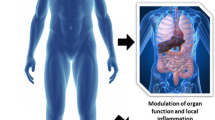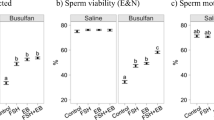Abstract.
Objective and design: The present study was designed to investigate the role of sex steroids in burn-induced remote organ injury.¶Material or subjects: Male Wistar albino rats were given burn trauma (n=39), and underwent castration or sham operation at 2 h following the burn injury.¶Treatment: Rats were injected sc with either 17β estradiol benzoate (E2, 10 mg/kg) or an androgen receptor blocker cyproterone acetate (CPA, 25 mg/kg) or vehicle, immediately after burn and at 12 h.¶Methods: At 24 h of burn insult, rats were decapitated. Blood samples for RIA of testosterone, estradiol and tumor necrosis factor (TNF)-α and the tissue samples for myeloperoxidase activitiy (MPO) were taken. ANOVA student's t test was used for statistical analysis.¶Results: Castration, antiandrogen and E2 treatments increased plasma estradiol levels and depressed burn-induced elevation in serum TNF-α levels. In the liver and lung, burn-induced increase in MPO was reduced by E2 and castration, while CPA was effective in reducing neutrophil infiltration only in the liver.¶Conclusion: We propose that treatment with estrogens or antiandrogens might be applicable in clinical situations to ameliorate systemic inflammation induced by burn.
Similar content being viewed by others
Author information
Authors and Affiliations
Additional information
Received 24 August 2000; returned for revision 23 November 2000; accepted by M.J. Parnham 18 July 2001
Rights and permissions
About this article
Cite this article
Özveri, E., Bozkurt, A., Haklar, G. et al. Estrogens ameliorate remote organ inflammation induced by burn injury in rats. Inflamm. res. 50, 585–591 (2001). https://doi.org/10.1007/PL00000238
Issue Date:
DOI: https://doi.org/10.1007/PL00000238




